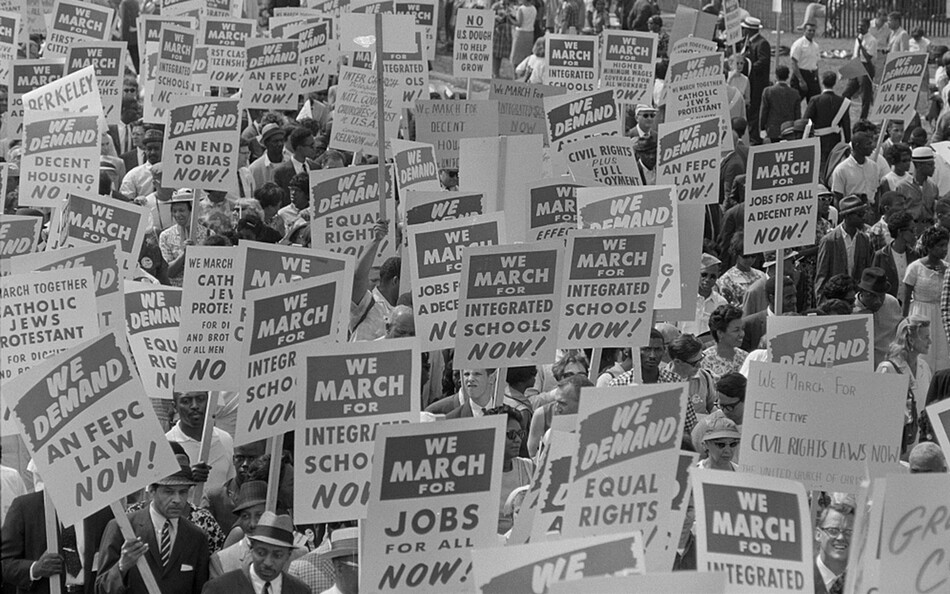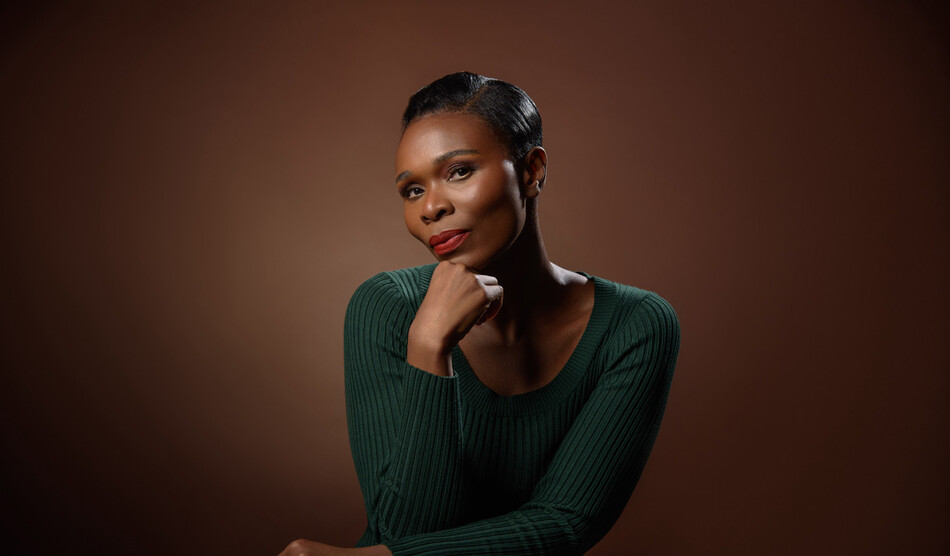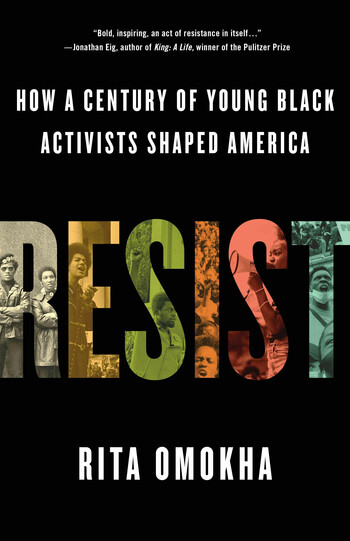Can you tell me about the genesis of this book?
I graduated from Columbia Journalism School in 2020, and was the winner of the Pulitzer Traveling Fellowship, which allows recipients to travel and report stories from anywhere in the world. I wasn’t sure what I wanted to do with the money, but just a few days after graduation, George Floyd was killed. I remember watching how he died and thinking, what did this Black man do to deserve this, other than being Black?
I’m a Black immigrant from Nigeria, and I came to this country not really having any sense of how race worked in America. I decided to use the money to take a cross-country trip, traveling to thirty states in thirty-two days, to talk to people about how they were feeling in that moment. While I met hundreds of people and heard hundreds of stories, I was particularly inspired by the tradition of Black youth protest and wanted to explore that further.
There are activists of all ages making a difference. Why did you decide to focus on young people in particular?
One stop on my trip really stood out: Portland, Oregon. I came across a group of young people gathered in a public square, and followed them as they marched in honor of Patrick Kimmons, a Black man who had been killed by police two years earlier. These were young teens — maybe 14 or 15 years old — and I was struck by their ability to galvanize their peers and organize a complex event. As an immigrant, I was awed that these young people even knew that they could use their voices in this way. Who taught them? What values were instilled in them that made this possible? I really wanted to trace that framework.
What do you mean by ‘as an immigrant?’ What do you think is unique about American protest movements?
People have freedoms in America because the generation before them fought for those freedoms. People died for those freedoms. I think that amongst the Black community here, there is a palpable sense that each generation needs to keep up the fight, that democracy is very fragile, and that the only way to maintain it is to continue to rise up against oppression. That tradition is not something we should take for granted.
How did you choose the people that you profiled in your book?
I wanted to focus on some of the lesser-known stories from Civil Rights history. For example, we’ve all heard about the landmark Supreme Court case Brown v. Board of Education, but I think many people might not know that Brown actually combined five cases dealing with racial segregation in schools. And only one of them resulted from a student protest — when 16-year-old Barbara Johns led a walkout of her segregated school in Prince Edward County, Virginia. We know about leaders like Martin Luther King Jr. and John Lewis, who started playing pivotal roles in their teens and early twenties. But people may know less about Charlie Cobb, who founded Freedom Schools in 1964, a group that empowered Black students to get involved by providing crucial education on civil rights, history, and political activism. Those were the kinds of leaders that I wanted to focus on.
You say that it’s important for each generation to teach the next generation how to protest, but you write in your book about tensions between older activists and youth activists during the Civil Rights Movement, and during the Black Lives Matter movement. What can we learn from those relationships?
I think there’s always going to be some tension between generations. During both the Civil Rights Movement and the Black Lives Matter movement, there were times when the older generation was patronizing and dismissive of the younger activists. The older generation tended to take a more traditional approach and was wary of any radical shifts that might rock the boat. And the idealistic younger generation became reluctant to learn from their elders.
There’s a verse in the Bible that says, “Better a poor but wise youth than an old but foolish king who no longer knows how to heed a warning.” But I think the takeaway, of course, is that there is power in collaboration. Each group brings something distinct to the table — elders bring experience and wisdom, while the youth bring energy and fresh perspectives. It is only by bridging that gap and working together that we can build effective movements.
How has technology and social media impacted activism?
Technology, and specifically social media, has had an enormous impact on the way we protest. First, it has obviously changed the way people organize. It used to be that activists had to go door to door to spread the word about a protest. Now you can reach millions of people on social media in a single post. You can gather more people, and you can do it quickly.
But there’s another vital function that technology serves — it gives us a tool to get to the truth. I write in my book about Darnella Frazier, the teenage girl who used her cell phone to film the murder of George Floyd. She posted it on Facebook and it went viral. And ultimately it was that video that undermined the account of the Minneapolis Police Department and led to the arrest and conviction of Derek Chauvin.
It took enormous courage for Darnella, who was then just a junior in high school, to realize what she saw and to take action. When I think about Darnella, I think about other figures from the book, like the Scottsboro Nine, a group of nine Black boys accused of raping two white women in 1931. Despite significant evidence pointing to their innocence, they were convicted on the basis of the women’s testimony alone. Technology has its dangers, but it has become vitally important to the fight against oppression by helping us get to the truth.
You acknowledge that some of the very hard-fought victories that you write about in your book have been already been overturned. For example, the 2013 Supreme Court decision Shelby County vs. Holder gutted large portions of the Voting Rights Act. How do you stay optimistic in light of some of these recent decisions?
I think it’s important to remember that history is not a straight line. Regressive actions like the Shelby County vs. Holder decision are potent reminders of how fragile American democracy is.
When people hear the word activist, I think they have a specific picture in their mind — that you need to spend all of your time at protests, or to devote your entire career to a cause. But the baseline definition of activism is ‘performing some kind of action.’ And truthfully anyone can do that. If you’re a lawyer, spend an afternoon volunteering to work on an immigration case. If you’re a journalist, help to uncover stories that may not be getting the attention they deserve.
We want to see the country that Dr. King dreamed about, and we’re not there yet. So how do I stay optimistic? I don’t see the point of being anything else.





